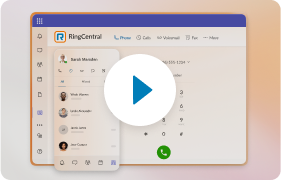
There’s a perception that people can get away with doing less when not in view of their managers. And that’s not untrue: When working from home, it’s all too easy to perform chores, make dinner, watch TV, attend to children or even take a nap.
The flip side, though, is that working in isolation provides an opportunity to focus sans interruptions. Coupled with the absence of an often time-consuming (and stressful) commute, the home environment actually offers a chance to get more done. A survey of 24,436 IBM employees backs this up, demonstrating that home-workers can carry on for an additional 19 hours per week (compared their office counterparts) before feeling any interference with family life. (Reference this infographic to learn how remote work and the cloud deliver big business benefits.)
Indeed, if people are getting the job done, why should it matter how they go about their day? Being agile means fitting work into life and not the other way round. Perhaps employers need to change their expectations and productivity metrics: Instead of physically seeing employees spend hours at their desks, bosses may want to evaluate people’s efforts differently. They need a measure of output.
With a cloud-based phone system, employers are easily able to get such a measure of productivity. Because cloud phone systems like RingCentral Office provide a central online interface, employee activity can be pulled up in administrative logs. This means employers can track how much time their employees are spending on the phone.
Adding a virtual phone system to this setup further enhances productivity tracking. A virtual phone system integrates with your cloud-based solution to offer detailed analytics and reporting on call patterns, response times, and other key metrics. This additional layer of insight helps employers manage and optimize their team’s performance more effectively.
Another obstacle to agile work is equipment and set-up requirements. With traditional phone systems, the cost of additional hardware can prove prohibitive. But the cloud completely removes this burden, as all phone infrastructure is hosted online. Cloud telephony users don’t even need a phone handset, because calls may be made and received directly through individuals’ Mac or Windows computers.
A final obstacle that can stand in the way of agile working is the nature of work itself. Traditionally, team members needed to be located in an office, hooked up to the same phone system as their colleagues. However, because calls through a cloud-based telephone system can be picked up from anywhere, employees are no longer pinned to a single location. In fact, call handling rules can be created to only forward calls when recipients are available.
Home working may continue to come under some scrutiny, but with performance monitoring, set-up and team continuity all taken care of, cloud phone systems can play a strong role in boosting both work-life fit and productivity.
Featured photo courtesy of H Sterling Cross via photopin cc.
Updated Aug 27, 2024











